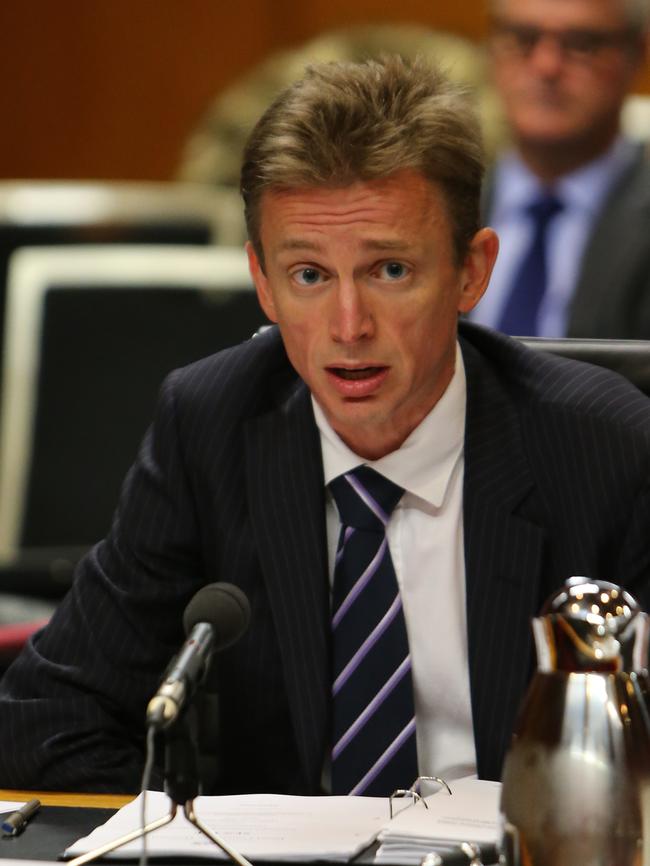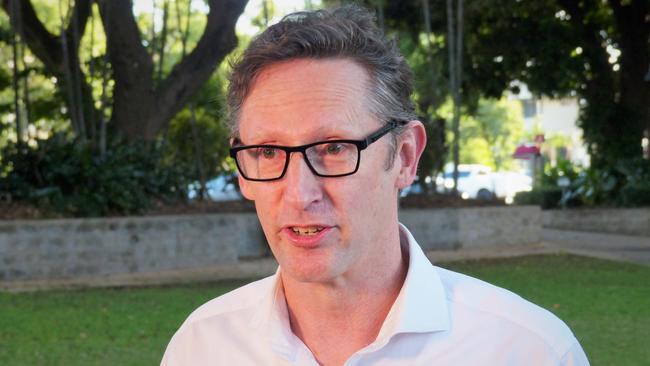Government unveils its proposed new tax law crackdown on the back of PwC scandal
The government has revealed its legislative response to the PwC tax scandal, which includes the maximum fine being increased 100 times its current level.

Tax advisers face potentially massively increased fines under proposed legislative changes by the government which would hand regulators more time and tougher powers to pursue misconduct.
The laws, set to be introduced into parliament on Thursday, come in the wake of the PwC Australia tax scandal, in which the firm misused confidential government documents in a bid to get ahead of new tax laws by designing strategies for clients to minimise their obligations.
Federal Treasurer Jim Chalmers said the government was cracking down on misconduct in the tax advice industry.
He said the move was “about preventing the kind of terrible misconduct exposed by the PwC scandal from ever happening again”.
“This is part of a comprehensive process to rebuild community confidence in the systems and structures that keep our tax system and capital markets strong,” Dr Chalmers said.
The proposed laws would increase the maximum penalties for advisers and firms that promote tax-avoidance schemes from $7.8m to $780m.
The current tax promoter penalty laws would be expanded in a bid to make them easier for the Australian Taxation Office to apply when pursuing firms and advisers promoting tax avoidance.

ATO deputy commissioner Jeremy Hirschhorn has told parliament the regulator had looked at using the tax promoter penalty laws to go after PwC and its former head of international tax, Peter Collins, but dropped the matter.
The proposed laws, coming after an exposure draft was released in September, would extend the time given to the ATO to take its fights to the Federal Court, lifting the limit from four years after the conduct occurred, to six.
The ATO is currently pursuing a former EY partner in the Federal Court on allegations he created a scheme to allow the firm’s clients to avoid paying tax. The Australian is unable to name this partner.
The government will also move to rewrite the country’s tax secrecy laws, removing limitations that prevented agencies speaking with each other.
A parliamentary inquiry has been told the ATO was prevented from disclosing the reasons it was seeking information regarding Mr Collins when it contacted Treasury seeking copies of confidentiality deeds signed by the former tax partner.

The ATO and Tax Practitioners Board would also be given powers to refer ethical misconduct from tax advisers, including but not limited to confidentiality breaches, to professional associations.
Chartered Accountants Australia and New Zealand recently secured member approval to increase its penalties for members.
CAANZ’s Professional Conduct Committee and Disciplinary Tribunal can now fine members up to $100,000, an increase from the previous $25,000 limit.
Members also voted to allow CAANZ to “address serious misconduct of former members”.
The proposed law would give the TPB the powers to extend protections to whistleblowers who provide evidence of tax agent misconduct. Previously the TPB has been hampered in its investigations as it was unable to extend protections.
The TPB will be given up to 24 months to run its investigations, with the new laws empowering the agency to make its register of practitioner misconduct more transparent.
Assistant Treasurer Stephen Jones said the PwC scandal “exposed severe shortcomings in Australia’s regulatory frameworks undermining community confidence in our tax systems”.

The bill comes as the Greens and Labor agreed to new rules governing the TPB, in a move that has incensed parts of the tax sector. The proposal would require tax agents to report to the TPB if they, or someone else they know, breached the code of conduct.
CPA Australia head of policy and advocacy Elinor Kasapidis said the association supported measures to “protect the trust and integrity of the profession”, but took aim at the Greens’ proposals.
“Despite the significant impact on CPA Australia and its members, we were at no time consulted on these amendments,” Ms Kasapidis said.
“Measures such as mandatory reporting need to operate effectively in practice and not contravene rights against self-incrimination.”
Greens senator Barbara Pocock said there had been “rogue behaviour” that had run “rampant in the tax advisory and consulting sector”.
The proposed laws come as parliament also published answers from former PwC chief executive Luke Sayers, who ran the firm during the period of the tax scandal – revealing he had been hit with a $180,000 penalty in 2018 after he was found to have breached the firm’s policies.
PwC found Mr Sayers had contravened the audit and consulting giant’s independence policy after personally investing in Australian Visa Processing, a company that attempted to win contracts to run parts of the country’s passports and visa systems.








To join the conversation, please log in. Don't have an account? Register
Join the conversation, you are commenting as Logout